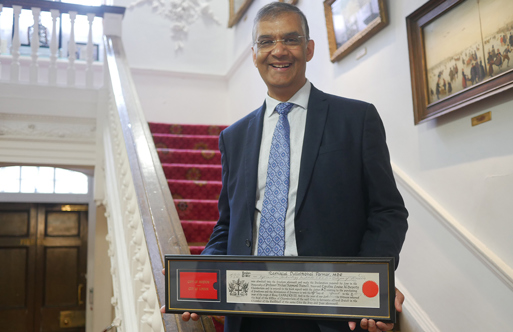In its Inclusivity in the Workplace survey, BCS asked men if they too felt their gender was a reason why they weren’t getting promoted; just under 1 in 10 (9%) thought it was an issue. When it comes to getting that all important first IT job, almost a third of women (30%) thought gender was the biggest barrier, compared with only 4% of men. Claire Penketh reports.
Zara Ahmed, a twenty-five-year old computer scientist graduate, is not surprised by the BCS survey that found almost a third of women in IT believe getting a first job was tougher because they were female: ‘I didn’t think it would be this hard. I felt I had to do a lot more work when compared to my male friends,’ said Zara.
Working in IT was Zara’s dream job from an early age: ‘I always had a passion for technology and wanting to know how things worked.’
She left Aston University in 2016 with a degree in computer science, had a summer internship at Microsoft Research in Cambridge and went on to study an MSc in Project Management, graduating in December 2017. So far, so good.
Handling rejections
But then she faced endless rejection when trying to get her first job, despite being highly qualified. She applied for over 100 posts: ‘I was having constant assessments… Video interviews, verbal and non-verbal tests and I even went to a couple of face-to-face days at assessment centre as well.’
Meanwhile Zara says for her male peers had a different experience: ‘Men that I graduated with all got jobs within about six months, maybe less, as some of them had already got jobs lined up - they didn’t study for a masters as I did.
‘When I compared myself to others it became quite demotivating. I felt I was going the extra mile, finding internships and volunteering and they weren’t. And I didn’t know what I was doing wrong.’
Finding a support network
Whilst at university Zara had become involved with organisations such as Code First: Girls which campaigns to get more women and girls into technology. As she struggled to get a job, she was drawn more to female networking groups: ‘Women networks are so important because mutual support encourages you to keep going.’
Another voice and another experience
Rubi Kaur, a Senior Solutions Architect for Vodafone, also knows the value of such groups as she serves on the committee for BCS Women. It provides networking opportunities for all BCS professional women working in IT around the world.
Rubi is a veteran of twenty years in the communications business and believes in the power of offering guidance and advice to the next generation: ‘We need to be ambassadors to the younger girls and women studying STEM subjects. We need to show them we are real women who work in technology, which is an incredibly exciting area with fascinating careers in all industry areas. It’s not just about being a coder.’
Positive results
Rubi’s experience working in IT has been positive right from starting out as a graduate trainee: ‘I was nearly always the only woman in a team of men, but I really did have supportive team members around me. They just saw me as another person, someone who could do the job well.’
She puts down this more inclusive approach to a forward-thinking culture in the multinational companies who employed her: ‘I have worked for some of the most advanced communications companies,’ she says, ‘and they understand that diversity is the key, not only to a happier workforce, but also to helping the company itself thrive.’
Currently, only around 17 per cent of the workforce in IT is female - but making a company diverse is good for business says Rubi: ‘If we don’t innovate, we’ll miss opportunities. We’re missing out on talent - we have a huge skills gap in IT. Confining ourselves to a very small talent pool can’t be the way forward. We need fresh ideas and different perspectives to develop new products and services, and to resolve wider issues in society for the benefit of all. To do this, we need a diverse talent pool.’
Making IT attractive to women
Attracting and retaining women isn’t rocket science she says: ‘It’s about having the right culture with supporting HR policies that foster greater diversity. This has to be driven from the top to the bottom of the company.’
Rubi adds: ‘For many women in IT there still remains an issue of work place unconscious bias and stereotyping. Fundamentally, to attract more women, businesses must work hard to change this. My experience shows it is possible.’
She cites her current employer, Vodafone, as an example of good practice. Thirty one per cent of its management and leadership roles globally are filled by women, it has a 42% female board and at least half the graduates it hires are women.
Rubi is still very enthusiastic about what she does: ‘I’m the classic case of being the only girl in the computer science class, who had a passion for science and technology and decided that was the job for me at a young age. I’m so glad I did because it’s the industry I want to remain in, as I still find the tech industry a wonderful, exciting and stimulating career.’
Never give up
Finally, Zara’s sheer determination has paid off and after a year of looking she has now secured a graduate trainee position for an international industrial software company, AVEVA. As she talks about her new post, what it entails and the areas she will be working in, it is clear she is delighted: ‘I’m happy that I have a job, now I can prove myself and show that I am capable, that I can do the job.’
Clare Bye, Global Head of Talent and HR Services at AVEVA said: ‘It’s fantastic that we were able to find Zara a role which really suits her skills and experience at AVEVA. We recognise that our teams are made up of people from different backgrounds and diversity is integral to our success. By encouraging an inclusive culture, we give our people a platform to showcase their strengths and demonstrate success through their unique skills, positive attitude and their contribution to the organisation.’

















